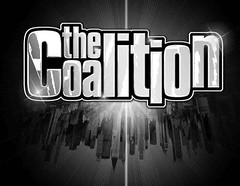« Join the fun | Home | Martin Luther King on Advent »
Christians and Booze
By Jeremy | December 5, 2005
I just found this question from “Mel” from back in October:
In your opinion is an occasional glass of wine or a beer okay assuming you don’t over imbide?
So sorry for not responding sooner. Not sure how I missed it, but the timing is good. My November U2 article generated a lengthy Op-Ed in this month’s Tri-State Voice (see below) that among other things takes issue with me repenting of refusing to have a beer for fundamentalist reasons rather than Biblical convictions.
I came to this conclusion for several reasons.
First, contrary to fundamentalist traditions, I discovered that nowhere does the Bible ban alcohol consumption by believers. On the contrary, Scripture abounds with 238 references to wine and other “fermented drink” (as distinguished from non-alcoholic “grape juice“) and even gives instructions when and why to consume it. The following are just a few examples:
- At times of Blessing. Genesis 27:24-26 (Isaac drinks wine before transfering his blessing to Jacob)
- As a sign of God’s Blessing. Genesis 27:27-29 (Isaac’s blessing to Jacob); Proverbs 3:9-11
- As a sign of spiritual authority. Genesis 49:10-12 (Jacob’s blessing to Judah)
- As an atonement sacrifice. Exodus 29:39-41 (part of the ritual consecration of priests)
- As a “supplementary offering.” Numbers 15:6-8 (an “aroma pleasing to the Lord”)
- As an expression of worship. Deuteronomy 14:25-27 (Use tithe to buy food, “wine and other fermented drink” for a feast in the “presence of the Lord”)
- As an offering. 1 Samuel 1:23-24 (Hannah presents Samuels to God along with an offering that includes a “skin of wine”)
- As a legitimate means of church business. Ezra 6:8-10 (Ezra paid for the construction of the temple in part with wine.)
- As an expression of tithing. Nehemiah 10:36-38
- As a social convention. Esther 5:5-7 (Esther serves and drinks wine with the king and Haman)
- As a gift from God to “gladden the hearts of men.” Psalm 104:14-16
- As a respite for those who are “perishing” or “in anguish.” Proverbs 31:4-7
- As a celebration of love. Song of Solomon 5:1-3; see also John 2:1-3 (Jesus’ first miracle was turning water into wine at a wedding)
- As medicine. I Timothy 5:22-24 (”Stop drinking only water,” Paul writes.)
To be sure, the Bible also cautions about abusing alcohol, calling wine a “mocker,” and beer a “brawler” that can easily cause men to be “led astray.” (Proverbs 20:1-3) Scripture further discourages kings and rulers from using it as it can impair one’s judgment (Proverbs 31:4-7), and flatly rebukes drunkeness: “Let us behave decently… not in orgies and drunkenness…” (Romans 13:13). But nowhere does the Bible prohibit it, and in fact, Paul explicitely authorizes church deacons and overseers to drink in moderation (disqualifying from leadership only those who are “given to drunkenness,” I Timothy 3).
Second, abstention from wine and fermented drink is described as “a special vow,” and was typically of limited duration. See for example, Numbers 6, which describes the Nazirite vow as one of “seperation to the Lord” and prescribes a lengthy ritual for when the vow period ends; Samson was an exceptional Nazirite whose vow extended from the womb to grave (Judges 13:3-5). In addition, the high priests were to abstain from “wine or other fermented drink” only when they would go into “the Tent of Meeting” (Leviticus 10:8-10).
Third, the use of wine in worship predates the Old Covenant Law of Moses, and Christ encouraged its use in celebration of the New Covenant. See, for example, Genesis 14:17-19, where Melchizedek, “the High Priest of God,” brings out “bread and wine” to invoke God’s blessing for Abram; and Christ’s “Last Supper” Luke 22:17-20, which we continue to practice in “remembrance of” Him, I Corinthians 11:23-25.
Fourth, the fundamentalist preoccupation with not drinking alcohol seems rooted exclusively in Romans 14:21, which says: “It is better not to eat meat or drink wine or to do anything else that will cause your brother to fall.” But to read this verse to mean, “Thou shalt not drink beer,” would require one to interpret the rest of the chapter to mean, “Thou shalt not eat meat or anything other than vegetables or only those things that are universally acceptable and an offense to no one.” Obviously that’s not what this chapter is saying.
The point of Romans 14 is not to tell us what we cannot do, but rather to reinforce how much we should do to show people God’s love. In my experience, unbelievers don’t get offended when Christians have a Bud. Fundamentalist Christians do. Unbelievers tend not to notice, and when they do, it’s because they are relieved that they’re not being judged.
Fifth, acknowledging that the Bible does not prohibit alcoholic consumption does not preclude believers from choosing to abstain. Daniel and his three friends chose not to drink the king’s wine or eat his food in an attempt not to defile themselves because that wine and food had been presented first as an offering to idols (in violation of Old Testament law) (Daniel 1:8-20). This choice of theirs God esteemed and honored.
I can probably go on, but I’ll leave it at that for now, with one final word …
I don’t have a problem with Christians who choose not to drink, and I’m hardly offering this as an excuse for Christians to go out and booze it up. Personally, I’ve been a teetotaller my whole life, although the motivation for doing so changed from a pharisaical one to more of a Nazirite one following that experience in Greece. I’ve also seen many Christian leaders and laity alike fall victim to the wiles of alcohol after misusing Scripture to justify excesses and addictions. Our task as disciples, or “Disciplined ones,” is to find the balance.
What do you think?
Topics: alcohol, culture, evangelical | No Comments »
Comments are closed.

 Welcome to the professional website and personal weblog of Jeremy Del Rio. Whether you're a client, friend, or curious onlooker, please don't stay a spectator. Engage the conversation. Your contributions matter here.
Welcome to the professional website and personal weblog of Jeremy Del Rio. Whether you're a client, friend, or curious onlooker, please don't stay a spectator. Engage the conversation. Your contributions matter here.

















